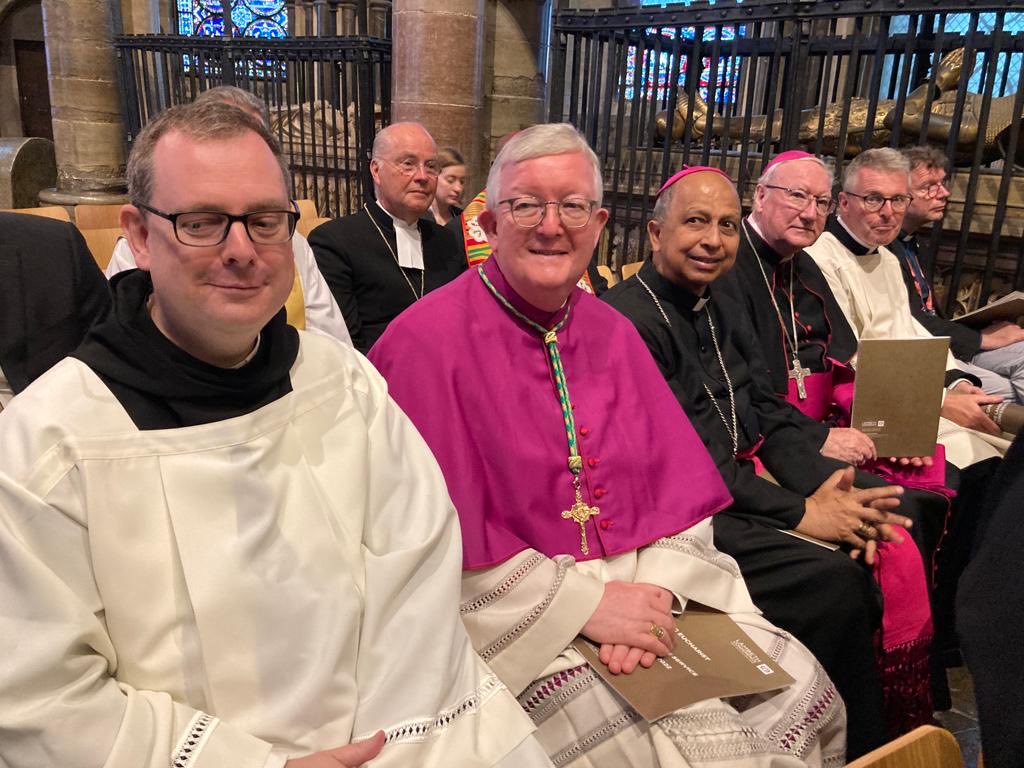|
Getting your Trinity Audio player ready...
|
- Bishops call for the prioritisation of marginalised Anglican voices
- Watch the Plenary session on Anglican Unity here
- Full text of Lambeth Calls document here
Bishops at the Lambeth Conference have agreed to explore the possibility of holding a worldwide ‘Anglican Congress’ – for the first time in more than 60 years.
Such a gathering, which would include the voices not only of bishops but lay people and clergy, would be likely to take place in the Global South. The Congress would be an opportunity for Anglicans to meet to “discern afresh the mission of God amidst a celebration of the diversity and artistry of our many cultures”.
There have only been two previous Anglican Congresses in history. The first saw around 17,000 Anglicans gathering in London in 1908 and in 1963 an estimated 16,000 people attended the second Anglican Congress in Toronto, Canada.
The decision came in the midst of a discussion about a Call on ‘Anglican Identity’ in which bishops heard of the need for the more marginalised voices of people in the Anglican Communion to be prioritised – especially those of indigenous peoples, women, children and young people.
During a plenary session, the Archbishop of Perth, Kay Goldsworthy, spoke of the historic legacy in her diocese of the ‘stolen children’ – indigenous children who were taken from their families as part of a long-running government assimilation programme in Australia.
She said: “We are learning with and from Anglicans in other parts of the Communion who are also taking their next steps. We are learning from the Anglican Peace and Justice Network and Living Reconciliation.
“We are praying that our next steps will be gentle on the ancient land in which most of us are recent arrivals. And we are thankful for the grace and the patience of elders and of members of the indigenous networks in our country.”
The Archbishop of Tanzania and Bishop of Tanga, Dr Maimbo Mndolwa, spoke of the differences between Anglo-Catholics, Evangelicals and Charismatics within the Anglican Church of Tanzania. Speaking of a time when the different Anglican factions within the country did not respect or trust one another, he said: “What made it possible for these traditions to become a Province?
“First, irrespective of their differences, and sometimes internal disagreements, they were conscious that all were Anglicans. This did not come easily. There were some sacrifices.
“Second was the awareness amongst them that the differences that existed among them, amongst these traditions, were God’s given gifts for the building up of God’s Kingdom.”
He finished with a challenge to his fellow bishops: “If you want to stay together as one holy, apostolic and catholic church, let us be mindful of the existing gaps.
“My brothers from the global south: mind the gap which exists between the south and the north. My brothers from the north: mind the gap with exists between the north and the south. Brothers and sisters, all in this conference: we should keep in mind that we have many differences, and those differences – which are created by God – are here to save us not to break our relationships.”
On the question of holding an Anglican Congress, the Anglican Communion’s Standing Committee will report to the next meeting of the Anglican Consultative Council, in Accra, Ghana, in February 2023, on the feasibility of such an event being held – with a final decision being taken by the Secretary-General, in consultation with the Archbishop of Canterbury.






